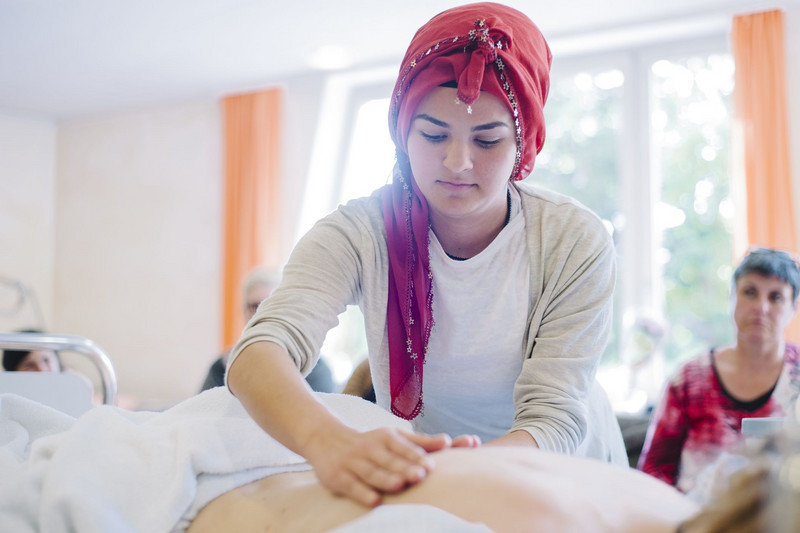Learning Paths for Generalists: Training in the Care Education Center in the Filderklinik

In Germany, the training and education of caregivers is undergoing a fundamental shift: starting in January 2020, the previously separate training programs for caregivers for the elderly, the sick, and for children will be integrated into one generalized training program. The caregivers will then hold the title “Pflegefachfrau” or “Pflegefachmann.” This change raises many questions, but also offers room for new approaches. The Care Education Center (Pflege-Bildungszentrum (PBZ)) in the Filderklinik, near Stuttgart, is taking advantage of this opportunity with a project named “Learning Paths: Individual Learning in Caregiver Training.”
Practical caregiving is a challenging task – and forms the foundation of the profession. What skills will the “generalist” caregivers of the future need in order to provide competent care, despite work intensification and serious personnel shortages? The three-year caregiver training program at the PBZ, which is enriched by an anthroposophical perspective, pays special attention to the touch points between responsible practical care and theoretical foundations. Instructors combine theory and praxis to develop a common of understanding of what training should look like today. In addition, trainees have the ability to design their training program more individually.
“Learning Paths creates optimal conditions for effectiveness, both for instructors and for trainees,” says SAGST project manager Christian Wüst. “The project takes into consideration the resources, organization structures, and processes necessary for further development. That is decisive for designing a caregiver training program that is competence-oriented, attractive, and contemporary, and for identifying individual development paths.”
